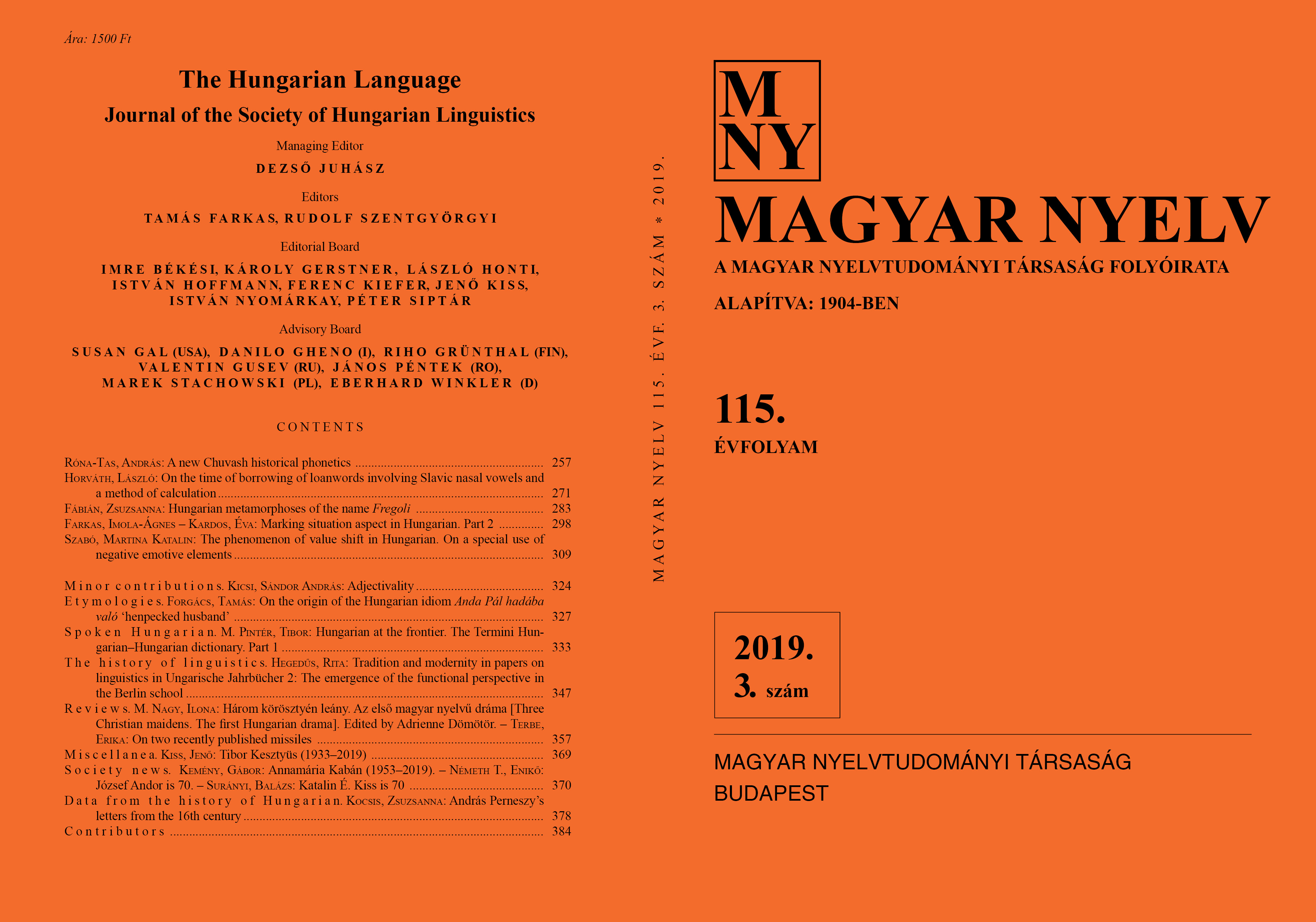A new Chuvash historical phonetics
DOI:
https://doi.org/10.18349/MagyarNyelv.2019.3.257Keywords:
Chuvash, Ogur, Volga Bulgar, linguistic history, phonetics, phonology, Mari, Proto-Mari, Cheremis, West BalticAbstract
The book under review is a new monograph on the history of the Chuvash language. The book first offers a detailed analysis of the sources of research on the history of the Chuvash language. In most cases and especially for the earlier periods, these sources are linguistic sources like loanwords from and in Chuvash. The earliest written sources are the Volga Bulgar inscriptions of the 13th–14th centuries. The history of the Chuvash sounds are investigated in all positions. The monograph contains many new insights. The author distinguishes three main dialects of the Middle Chuvash or Volga Bulgar period and investigates their mutual influence. A detailed analysis is given of the history of the process of the closing and reducing of the vowels. The impact of the neighbouring languages is given special attention. The author claims that the name Cheremis used to be the name of a group of people speaking a West Baltic idiom, later the name assumed the meaning “foreign people” and changed finally into the foreign name of the Mari. An Appendix dealing with the West Baltic layer of words in Mari and Chuvash close the book. The work contains rich material for a future etymological dictionary of the Chuvash language.
Downloads
Published
Issue
Section
License
Copyright (c) 2024 Szerkesztő MNy

This work is licensed under a Creative Commons Attribution-NonCommercial-NoDerivatives 4.0 International License.
Magyar Nyelv is a Diamond Open Access periodical. Documents can be freely downloaded and duplicated in an electronic format, and can be used unchanged and with due reference to the original source. Such use must not serve commercial purposes. In the case of any form of dissemination and use, Hungarian Copyright Act LXXVI/1999 and related laws are to be observed. The electronic version of the journal is subject to the regulations of CC BY-NC-ND (Creative Commons – Attribution-NonCommercial-NoDerivatives).
The journal permits its authors, at no cost and without any temporal limitation, to make pre-print copies of their manuscripts publicly available via email or in their own homepage or that of their institution, or in either closed or free-for-all repositories of their institutions/universities, or other non-profit websites, in the form accepted by the journal editor for publication and even containing amendments on the basis of reviewers’ comments. When the authors publicize their papers in this manner, they have to warn their readers that the manuscript at hand is not the final published version of the work. Once the paper has been published in a printed or online form, the authors are allowed (and advised) to use that (post-print) version for the above purposes. In that case, they have to indicate the exact location and other data of the journal publication. The authors retain the copyright of their papers; however, in the case of an occasional secondary publication, the bibliographical data of the first publication have to be included.



